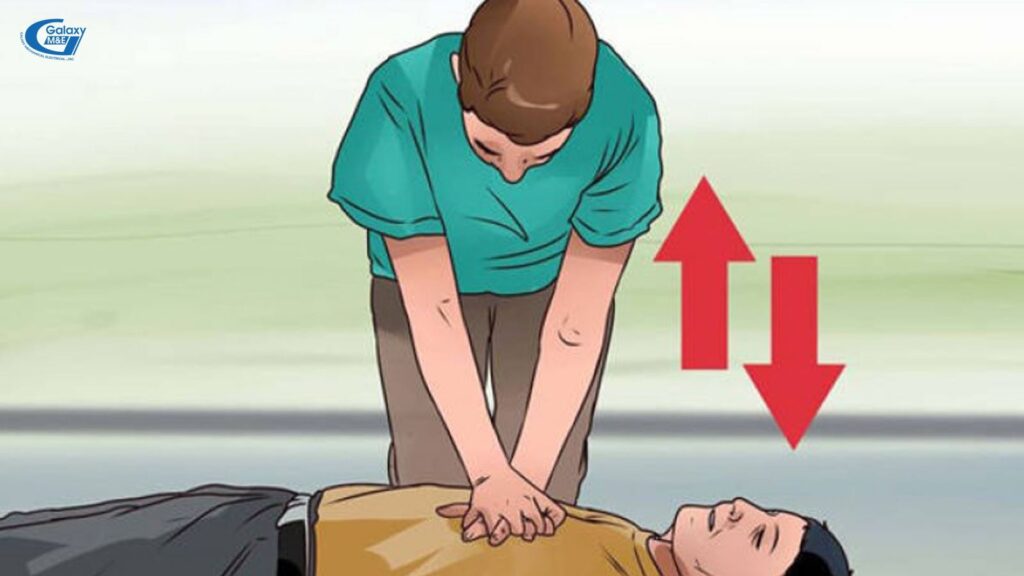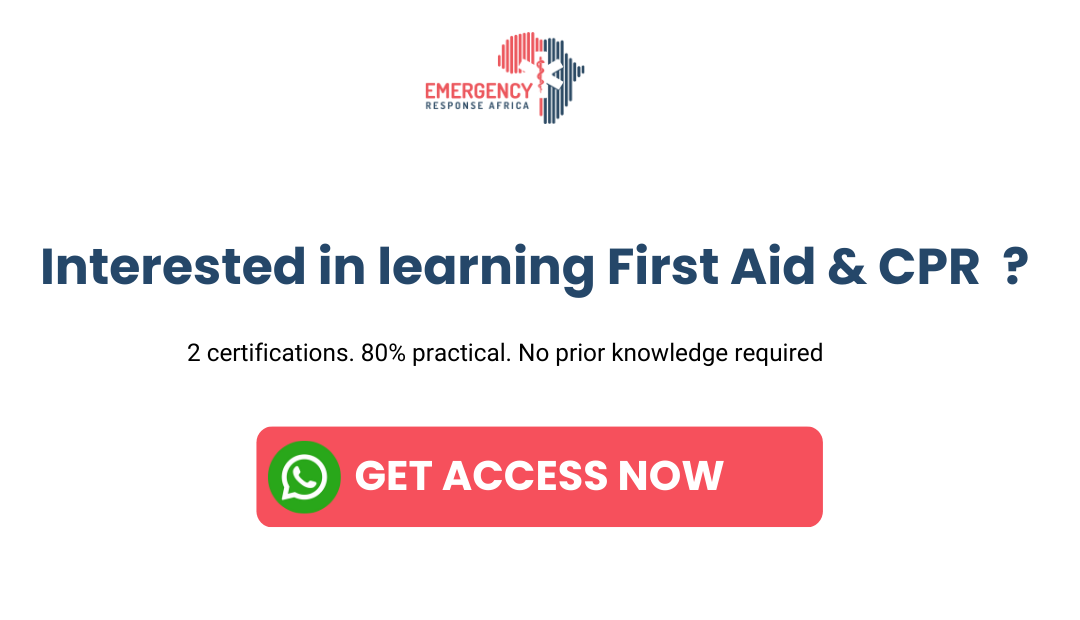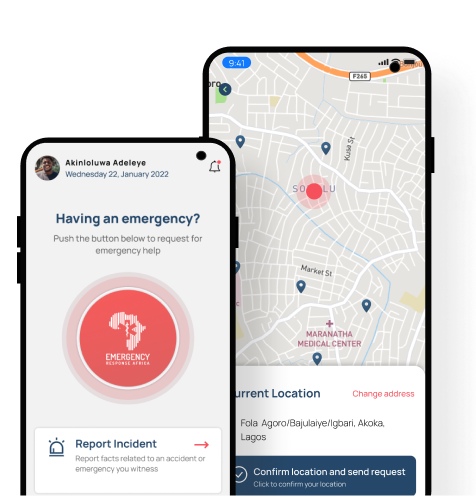Do you have a first aid certificate or are you still waiting for an emergency before you see the need to get it? Discover how a first aid certification in Nigeria can prepare you to respond effectively in critical situations.
First-aid training can, literally, be the line between life and death in any form of emergency. Be it a minor injury or a life-threatening condition, knowledge on first aid is bound to stabilize the situation until the arrival of professional medical assistance.
In Nigeria, first-aid certification programs are growing in popularity, with more and more people realizing how first aid is crucial in being prepared for such emergencies. This piece shall lead you on a step-by-step guide for all you need to know about First Aid Certification in Nigeria.
What is First Aid?
First aid is the immediate care given to someone who is injured or suddenly becomes ill. It includes simple but potentially life saving steps that an individual with minimal equipment can provide. First aid can be as basic as applying a bandage to a small cut or as critical as performing CPR on someone who has stopped breathing.
First aid has basic objectives which are to:
- Preserve life
- Prevent the condition from worsening
- Promote recovery
The goal of treatment is to stabilize the patient until professional medical help can step in.
Why is First Aid Certification Important?
First aid certification is important since it helps you to know the knowledge and skills to be applied to an emergency situation. These are what certified first aiders learn:
- Identify symptoms of various medical conditions and injuries.
- Providing the right care
- Proper Use of First Aid Equipment
Having a first aid certificate gives you the confidence and the courage to act fast in the face of an emergency. Confidence is very important because any emergency can worsen due to the slightest feeling of hesitation. And in some specific industries, the presence of staff with a first aid certificate is a legal requirement. For instance, mainly companies involved in construction, manufacturing, or high-risk activities must legally have first aid certified people protecting the company.
How to Get First Aid Certification in Nigeria
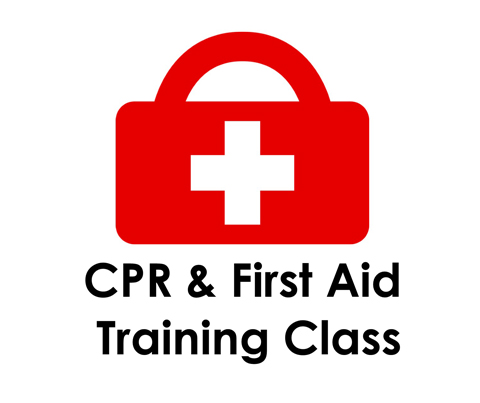
These are the steps you need to follow anytime you would like to gain First Aid Certification in Nigeria:
1. Look for Research Training Providers
The first step you need to take is to find a reputable first-aid training organization. There are several thousand organizations across Nigeria that say they are first aid training organizations, but it is very important to find one that is really accredited and recognized internationally. All this is to ensure that their training is internationally standardized, and once you are certified, you become a genuine holder of that certification. Some of the widely known first aid training providers in Nigeria include:
- Emergency Response Africa (ERA)
- The Nigerian Red Cross Society
- St. John Nigeria Ambulance
These organizations offer various levels of first aid training, from introductory courses to the advanced, designed to serve different purposes and industries.
2. Choose the Right Course
Having identified potential training providers, you shall have to choose the relevant course that will meet your needs. First aid courses have different content and durations, which is the reason you need to pick one that will be in the best position to serve your objectives. Some of the common first aid courses are:
- Basic First Aid: Includes basic skills such as wound care, dealing with choking, and basic CPR.
- Advanced First Aid: A higher level in first aid that includes advanced treatment, fracture and burn management, and advanced CPR.
- Pediatric First Aid: It includes providing first-aid to infant children with focus on topics like choking, fever, and allergic reactions.
If you are unsure which course to take, most training providers offer guidance available to help you come to the right decision.
RELATED SERVICE
3. Get Yourself Registered in the Course
After you have selected the course which has the potential to be relevant, the next step is to enroll/register. Most training providers have large numbers of flexible choices such as weekend classes and evening classes. Most organizations offer both in-person and online classes. Some face-to-face learners move faster in grasping much of the practical practice for first aid which is essential to master the first aid techniques.
The rest are fine to grab the detail on online classes which are convenient and learning probably from home at your pace. Check carefully during the enrolment procedures the course descriptions; pre requisites; duration of the course; cost; or any special instructions to be followed. A few advanced courses might require you to study a basic first aid course for you to qualify.
4. Participate in the Training
All you need to do is be present when summoned for the training sessions; after that, an open mind and willingness to learn is what you need. In most cases, theoretical classes and practicals will be conducted. You will be learning about different medical conditions, how a patient’s condition can be assessed, and how to administer first aid the right way.
Significantly, the hands-on practical session helps you to practice the learned techniques in a controlled environment. Such hands-on practical experience from the controlled exercise is crucial to building confidence and skills needed to respond in a real situation confidently.
5. Do the Assessments
Most courses end with some form of assessment at the end. This may be written, conducted by means of a practical test, or a combination test that you will be required to pass. The determination made by the assessment at that point signifies that you have the appropriate knowledge and skills to deliver first aid properly and safely. Don’t be worried if you are nervous about the assessments; instructors are present to help and guide you through the process. Many training service providers allow you to retake the assessment if you do not pass on your first attempt.
6. Get Your Certificate
After successful course completion with a fair passing percentage of the required assessment tests, a certificate of first aid will be awarded. This certificate is an official endorsement of your capability to give first aid and normally is valid for a duration, usually two to three years. After that period has expired, you will then need to get recertified either through a refresher or through a recertification examination.
Keeping your certification current means maintaining sharp skills and staying in a state of readiness in order to respond effectively to an emergency at all times.
READ ALSO
Benefits of First Aid Certification
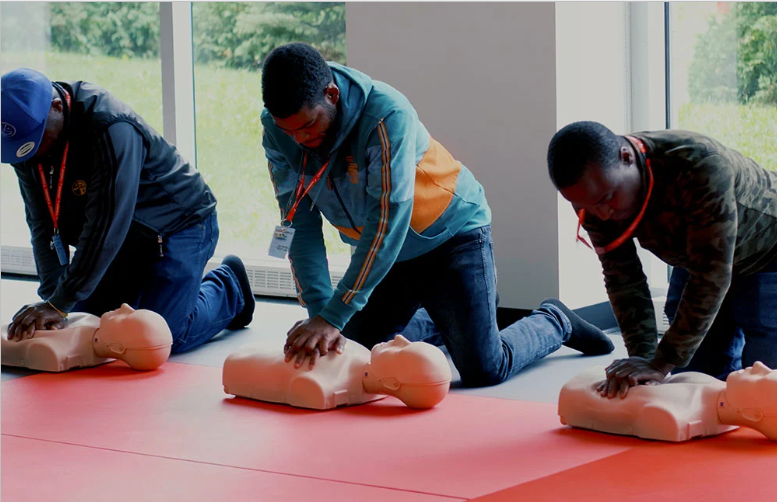
There are a number of benefits that come with having a first aid certification in Nigeria:
- Prepared: You will gain the knowledge and abilities to respond to emergencies both at home and in the workplace.
- Confidence: Knowing what to do in case of an emergency gives you that assurance to act fast and effectively.
- Legal Compliance: In some industries, however, there are legal requirements to have certified first aiders. Your certificate will ensure compliance with laws and workplace safety regulations.
- Professional Enhancement: Being first aid certified could enhance your resume, that is for all professionals working in health care, education, or any line of work where safety is a part of the essential functions of their job.
- Personal Fulfilment: It brings great satisfaction when one knows that he or she can offer extended help to others in their time of need. First aid certification gives you tools to make a difference in people’s lives.
How to Maintain Your First Aid Certification
It is not a lifetime achievement. It isn’t permanent; in other words, first aid has to be renewed. Earlier in this paper, it was discussed that after some stipulated time, which is usually two to three years, the certification will expire. For the sake of being updated, another course or a recertification exam will have to be retaken before one’s present certification expires. So you will keep your skills updated, further ensuring that you are always in a position to administer valid first aid.
Even outside the formal recertification, it is still advisable that you continue to review knowledge and practice the skills learned in first aid. This may be helpful for refreshing skills and being prepared at any time for whatever kind of emergency.
Conclusion
Becoming First Aid Certified with a well-respected training organization like Emergency Response Africa (ERA) is an essential investment in both the quality of your life and your career. By following the steps in this guide, you’ll not only become first aid certified but also learn how to respond to emergencies effectively.
This certification is an investment that anyone can make if they wish to experience great opportunities for employment at any level or even venture competitively in the global market. Take the first step today by enrolling in ERA’s First Aid and CPR Training.
Call 07014117943 to learn more about how you can get certified and be prepared for any emergency.

